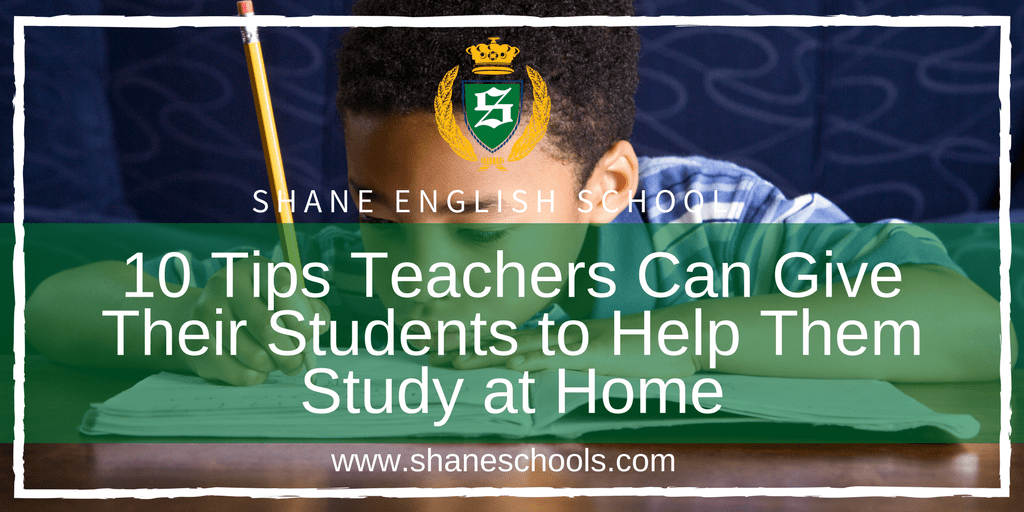Children often fail to adopt healthy studying habits and take responsibility for their schooling, which is usually most noticeable when they move to secondary school. There is so much a parent can do, so it is important that the youngsters get proper guidance from their teachers too.
A young child is like a sponge, always ready for new knowledge and experience.
It is both surprising and sad that during schooling, the majority of these little sponges full of questions and interest in everything start to hate studying. To them, school, learning, homework, and especially reading represents a burden and torment.
Children do not become indifferent and lazy by themselves. They learn it. A common problem is that grades have become their only goal. Often, it is not the goal of the child but the parent. Ultimately, the child has no sense that it is learning and achieving something for himself, but that it is something he is doing for his parents.
To break this habit of learning for grades, teachers should guide and advise the pupils.
Here are ten useful tips teachers can give their students to help them study at home.
Listen in Class then Read at Home
One of the most obvious, yet most useful tips a teacher could give their students is to pay attention in class. At home, the pupil should read the new lesson from the book on the same day as it was taught, without the burden of learning it, and studying it later will not be as challenging and it will take much less time.
Study in the Same Place at the Same Time
Teachers should advise their students to do the assigned homework always in the same place, preferably at the work desk, in a quiet and well-lit room. It would be good if it were at the same time too. During work, there should be no other activities, the television and the computer must be turned off.
Furthermore, it would not be bad for them to make a schedule of activities to specify the time for learning and time for other leisurely activities.
By doing this, the child will develop a feeling of continuity, and studying will soon become a part of their daily routine, which will ultimately lead to developing healthy studying habits.
Study at Intervals
If the material consists of a significant amount of information the students need to memorize, suggest they do not try to learn everything at once, but schedule their learning for several days. Learn part by part. If the lesson is long and challenging, it’s good to split it into a built-up whole and learn segment by segment. Breaks are crucial for effective learning because they give your brain time to integrate and match the acquired knowledge and connect it to the previously learned.
Skim the Text before Reading
One of the best tips you could ever give your students is when they decide to study, they do not go straight to reading and repeating. First of all, it’s good to take a look at the lesson as a whole, read the titles, subheadings, and what the textbook writer has already highlighted (in bold letters), view the images, and look at the essential elements in the lesson.
Then, the students should ask themselves what they need to learn, whether they can use the existing knowledge (something they have read, written, listened to or watched on television) and what this knowledge is about.
Don’t Learn by Heart
Learning by heart makes studying any learning material like trying to memorize every number in the phone book by heart – annoying, confusing, and meaningless.
Encourage your students to ask why something is the way it is, how it came about and to find meaning in it. Teachers can help students find the usefulness of what they are learning, what it has to do with things they already know and how they can relate it to their everyday experience.
Of course, this implies that they find those connections themselves and that the teacher is only someone who can help them in the process. Learning should not be limited to school or homework; learning is a continuous part of our lives.
Working with young learners? Tips for Teaching Elementary EFL Students
Highlight and Underline
By underlining key words or sentences, the students emphasize relevant information. Suggest they highlight the text in their own way – it can be in different colors for example, and write down any comments or questions they may want to discuss with you in the next class.
Don’t Study Materials that are Similar in One Sitting
While you’re rested, you first need to learn the material that is harder. Do not study similar or related subjects one after the other so as not to mix information and facts. The more similar two topics are, the easier it will be for the students to mix them up, so it’s advisable they don’t study both in one sitting.
Use Visual Aids
If you have, for example, taught new vocabulary items to your students, it would be a good idea for them to write those words down on a larger piece of paper or cardboard, along with the meaning of the word or an illustration. That will help them memorize the new word since many children have a photographic memory.
You can form groups in class, assign different tasks to each and provide them with the cardboard. They will have to make it at home, and you can hang it in the classroom. Children love to write and draw, especially when they are young, and this is a fun activity that will not give them the impression that they are studying when, in fact, they will be.
Use the Internet
Since children are starting to use the Internet at an early age, you can suggest they do Internet research if there is something they do not understand or to further examine a topic that interests them. The Internet is particularly useful for learning new words, with tons of great dictionaries that can be found online, like the Merriam Webster, Thesaurus, and the Macmillan Dictionary. Furthermore, there are other great websites, such as Wikipedia, where information on lots of topics can be found. Even simply Googling things can often do the trick.
Ask Parents for Help
Parents should aid their children when they are learning, but not serve them complete information.
By explaining to your students that asking parents for help is fine as long as the parent is not the one who does all their work, you will accentuate the benefit of doing things on their own. After all, it’s the kids who will need to know these things that the parents probably already know.
Here are a few websites parents can use to help: Websites to Help Your Children Practice English at Home
The pupils who develop healthy studying habits will have a significant advantage later in high school or at the university. They will learn to use their time efficiently and will not be studying by heart at the last moment. They will master the material more quickly, have a better relationship with teachers and professors, and know how to organize their time. Those students will always have better results, regardless of the level of intelligence or interest.
Once acquired, work habits remain forever. Children who develop them in time will find it easier to go through life even when they are out of school. They will be more organized, respectful of their own and others’ time, more concentrated and will perform their duties more efficiently.
As a teacher, there is only so much you can do to help your students become better learners. The important thing is never to lose your temper if things are going as planned and do your best to implement this in your classroom.
Want more like this? Be sure to check out our Teaching Tips blog. Or if you’re looking to get more out of your own language learning, see our Language Learning Tips.
About the Author
Milica Madic, a freelance blog/article writer from Serbia, with experience in teaching and working with young learners.

We're hiring!
With schools around the world, Shane English School always has exciting new opportunities to offer.


